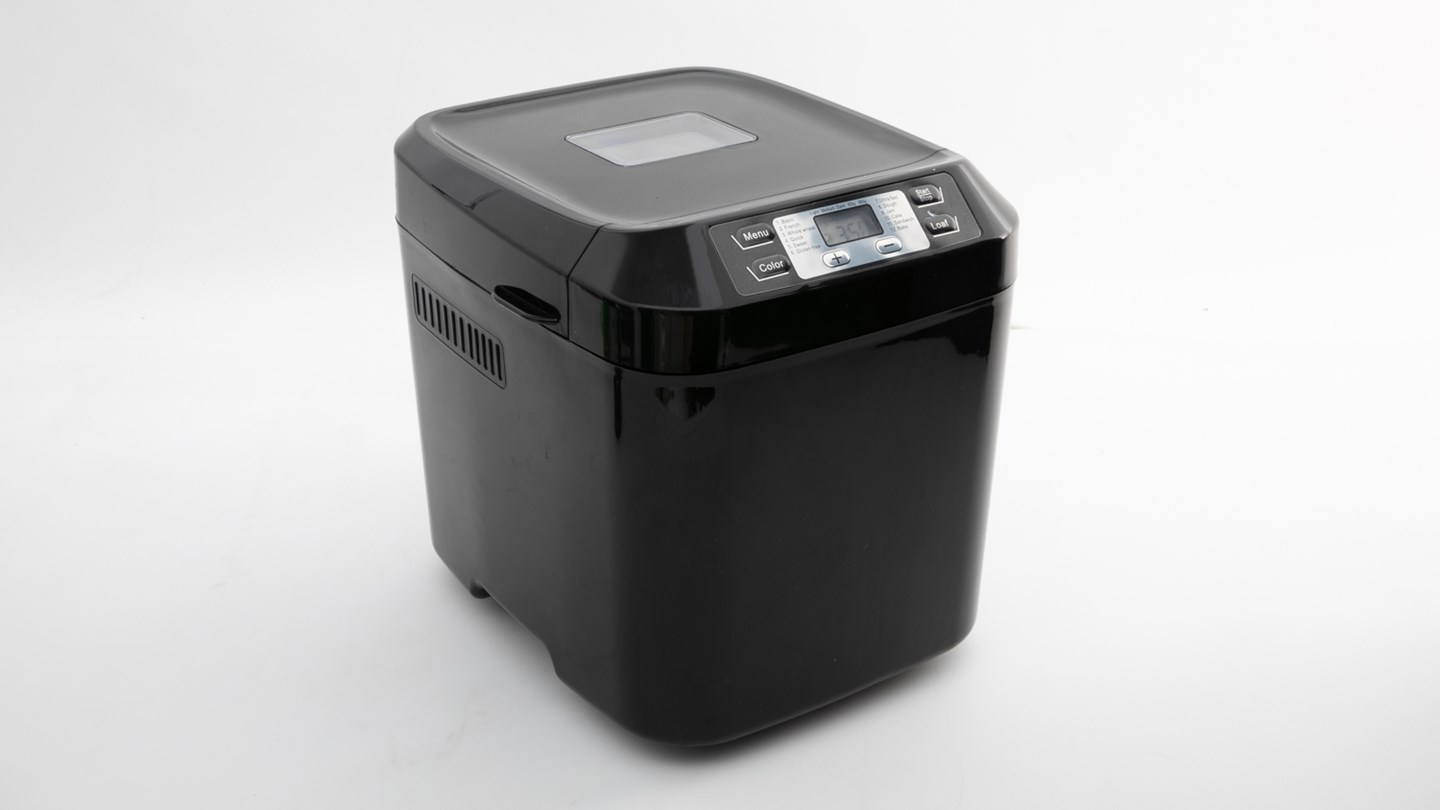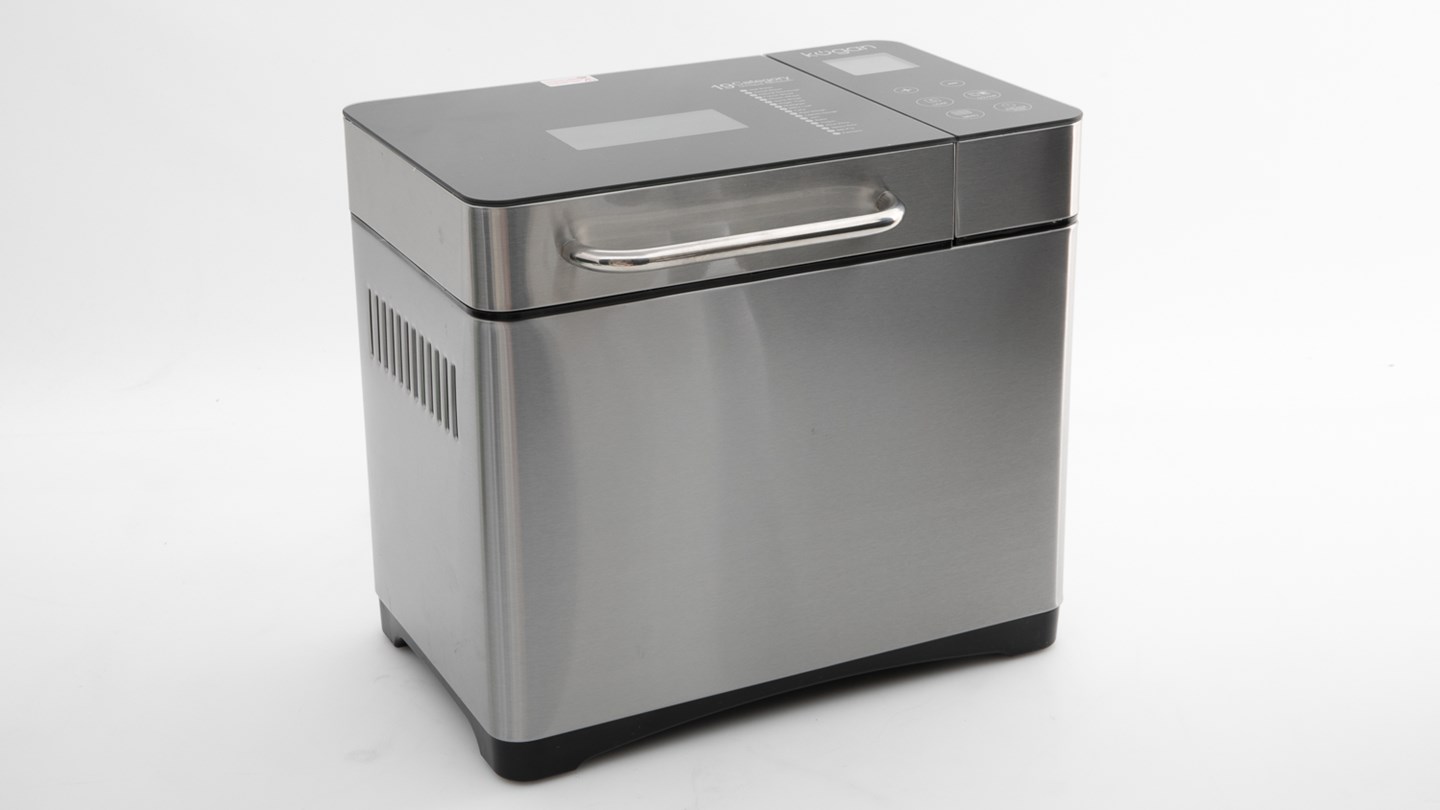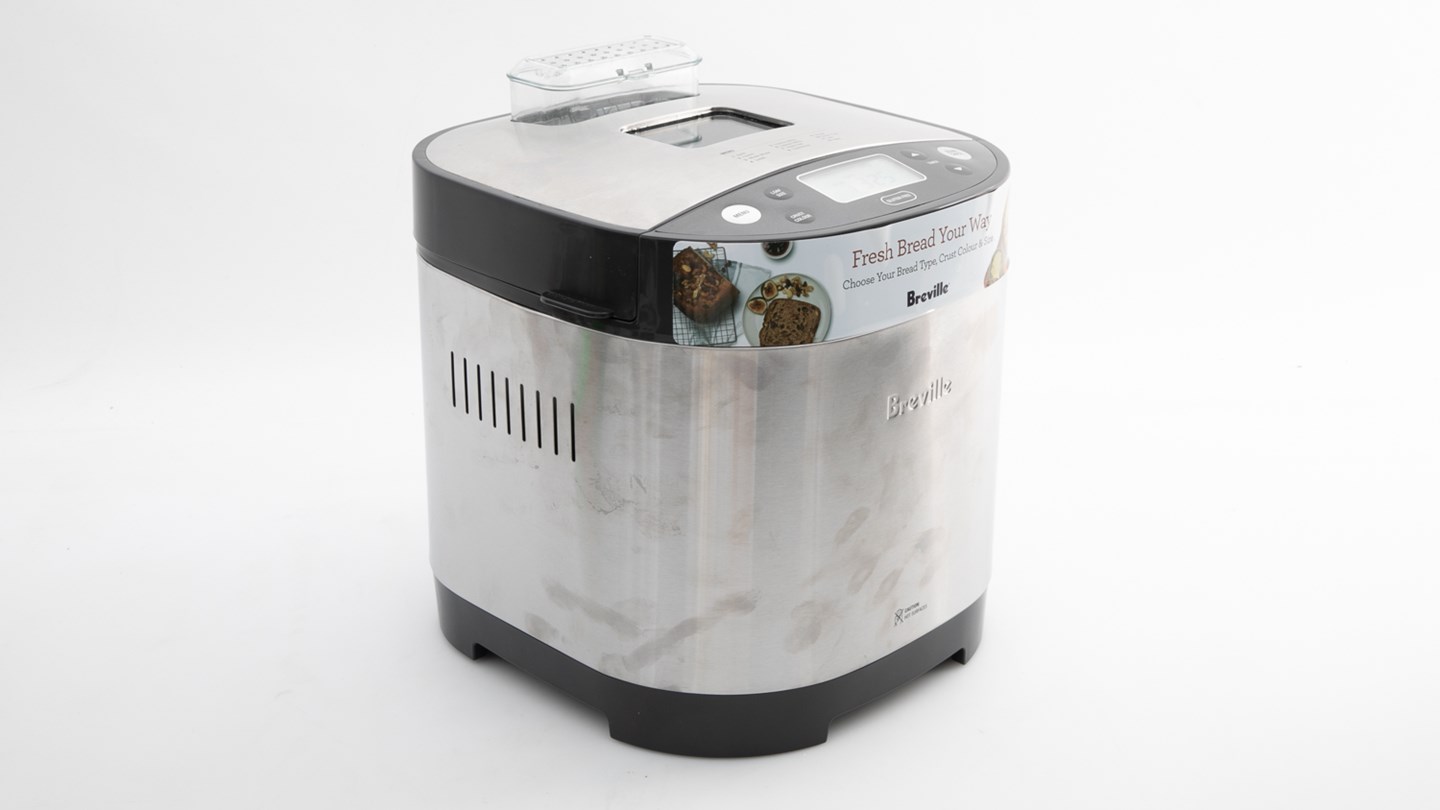Smith & Nobel Multifunction Bread Maker SNBM420 review
Priced at $150.
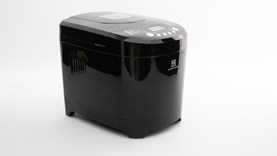
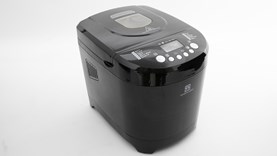
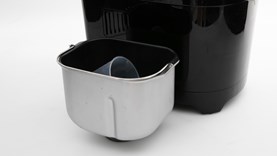
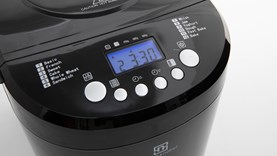
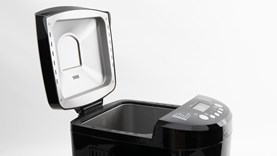
Good points
Bad points

Unlock our expert review and more
- Reviews and ratings you can trust
- Easy side-by-side comparison
- Recommended products at a glance
-
Recommended
View more details.
We recommend breadmakers that score at least 80% overall.
-
CHOICE Expert Rating
View more details.
The overall score is made up of performance (70%) and ease of use (30%).
-
Performance score
View more details.
The performance score is made up of how well the breadmaker makes multigrain from scratch, multigrain from premix, rye bread from premix and gluten free from premix.
-
Rye bread premix score
View more details.
We compare the machine's performance when making rye bread loaves from a Laucke premix (widely available in most major supermarkets). Where available, we use the breadmaker's instructions for the premix, otherwise we use the premix manufacturer's instructions. We visually assess the loaves for even crust colour, shape, uniformity of mixing, crust and crumb texture, looking for small and evenly distributed bubbles.
-
Multigrain from scratch score
View more details.
We make a 1kg loaf of multigrain bread from scratch following the manufacturer's instructions. We visually assess the loaves for even crust colour, shape, uniformity of mixing, grain distribution, crust and crumb texture.
-
Multigrain premix score
View more details.
We make 1kg wholemeal multigrain loaves from a supermarket premix and assess loaves for even crust colour, shape, uniformity of mixing, grain distribution, crust and crumb texture.
-
Gluten free premix score
View more details.
We compare the machine's performance when making gluten free loaves from a Laucke premix (widely available in most major supermarkets). Where available, we use the breadmaker's instructions for the premix, otherwise we use the premix manufacturer's instructions. We visually assess the loaves for even crust colour, shape, uniformity of mixing, crust and crumb texture, looking for small and evenly distributed bubbles.
-
Ease of use score
View more details.
We assess general ease of use. How easy it is to load and unload, whether the paddle gets stuck in the loaf, and viewing through the window. We also assess how intuitive the controls, labels and features are, and how easy the machines are to clean.
- Time taken from scratch (hh:mm)
- Time taken from premix (hh:mm)
-
Temperature (°C) of the sides/lid/controls
View more details.
The temperature (in degrees Celsius) of the sides, lid and controls are taken 10 minutes before the loaf is completed.
-
Availability
View more details.
'Tested model' means you should be able to find this model in stores. We check availability every time we test, which is every 2–3 years for breadmakers and we've found they don't turn over very often.
- Discontinued model
-
Price
View more details.
This is the recommended retail price at the time of testing, but shop around because you might be able to find a better deal.
- $150
-
Loaf size options (g)
View more details.
The number of slices will vary, but generally you can expect eight slices from a 500g loaf, 12 slices from 750g and 16 slices from a 1kg loaf.
- 450g, 680g, 900g
-
Exterior dimensions (cm, HxWx D)
View more details.
Exterior dimensions of the breadmaker (H x W x D, cm)
- 28 x 27 x 36
-
Bread tin dimensions (cm, HxWxD)
View more details.
These dimensions are measured with the lid opening at the front and the bread pan positioned in the breadmaker.
- 12 x 17 x 14
- Warranty (years)
- 1
- Origin
- China
- Website
- harrisscarfe.com.au
-
Loaf shape
View more details.
Do you prefer a horizontal or vertical loaf? Smaller loaves are easier to slice, while larger taller loaves can be trickier to slice as the top of the loaf has a softer crust.
- Horizontal
- Keep warm function
- Yes
-
Crust colour options
View more details.
Most breadmakers let you choose from three crust colours: light, medium or dark.
- Medium, light
-
Delay start
View more details.
This feature is handy if you want to wake up or come home to freshly baked bread.
- Yes
-
Automatic fruit and nut dispenser
View more details.
This automatically adds ingredients such as fruit, nuts and herbs for you at the right time. Some models beep to let you know they're being added.
- No
-
Fruit and nut beeper
View more details.
Some breadmakers automatically add ingredients such as fruit, nuts and herbs for you at the right time, and a beeper will let you know when they're being added.
- Not applicable
-
Progress indicator
View more details.
This feature shows the stage of the bread-making process in the electronic display window.
- No
-
Removable lid
View more details.
A removable lid makes cleaning easier.
- No
-
Viewing window
View more details.
A viewing window lets you see the bread and so reduces the temptation to open the lid, which can cause heat loss and produce a poor loaf. The window will fog up during some of the processes.
- Yes
-
Power interruption protection
View more details.
If there's a power outage, this function keeps baking progress in "memory" so you can continue where it left off.
- Yes (20 minutes)
- Basic white setting
- Yes
-
Basic rapid or turbo setting
View more details.
For bread in a hurry. This setting reduces the cooking time by approximately one hour. Breads made using this setting may be slightly undersized and denser due to the reduced rising time.
- Yes
-
Wholewheat setting
View more details.
For a heavier bread. This setting allows for a longer rising time, which is needed for wheat or grain flours. It's normal for wholewheat breads to be slightly smaller and denser than a white loaf. All models have this feature.
- Yes
- Wholewheat rapid setting
- No
-
Sweet setting
View more details.
For breads that require additional ingredients such as dried fruit, nuts, and chocolate. A timer beeps during the second kneading, so you can add the ingredients manually.
- Yes
-
French setting
View more details.
For a crispier crust. This setting reduces the amount of kneading time and increases the rising time. The result is a crispy crust, à la French and Italian breads. It's also best for recipes low in fat and sugar.
- Yes
-
Yeast-free setting
View more details.
For muffin-style or damper breads. The recipes used for this setting rely on baking powder or bicarbonate of soda as the raising agent. This will result in a heavier texture and a loaf that's not as highly risen as yeast breads.
- No
-
Jam setting
View more details.
This feature is for jams and preserves made from fresh fruit (and results in less mess than the old stovetop method).
- Yes
-
Bake only setting
View more details.
For baking without kneading or rising first. This setting is the equivalent to baking in a conventional oven and can be used to bake frozen or pre-prepared dough.
- Yes
-
Pasta dough setting
View more details.
This setting prepares the dough for pasta, which can then be used in a pasta machine or rolled out and shaped by hand.
- No
-
Pizza dough setting
View more details.
This setting mixes the dough for flatbreads such as pizza bases and focaccia. The dough is ready to roll out and no rising is required – just add the topping and bake in a conventional oven.
- Yes
-
Dough setting
View more details.
This feature is for preparing dough to bake in an oven. The dough setting will perform the mixing/kneading/punch down and first rise automatically. You can then shape the dough into rolls, plaits, bagels or whatever you like, allow to rise a second time, then bake in a conventional oven.
- Yes
-
Cake setting
View more details.
This feature is for cakes and non-yeast breads such as banana bread or yeast-free loaves.
- Yes - no yeast
-
Continental/Italian/Crusty setting
View more details.
This setting reduces the amount of kneading time and increases the rising time. The result is a crispy crust, à la French and Italian breads. It's also best for recipes low in fat and sugar.
- No
-
Sandwich/loaf setting
View more details.
This setting makes soft and light bread for sandwiches.
- Yes
-
Gluten-free setting
View more details.
The recipes used for this setting will substitute wheat flour with other types of flours such as rice flour, soy flour and chickpea flour.
- No






